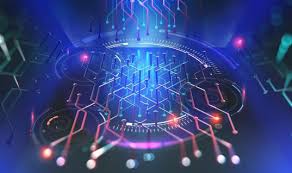
Breaking News
 AI-powered warfare: Anthropic's Claude model used in Venezuelan military raid
AI-powered warfare: Anthropic's Claude model used in Venezuelan military raid
 U.S. deploys second aircraft carrier to Middle East amid escalating tensions with Iran
U.S. deploys second aircraft carrier to Middle East amid escalating tensions with Iran
 The Last Line of Defense: Why America's sheriffs are the last barrier against tyranny
The Last Line of Defense: Why America's sheriffs are the last barrier against tyranny
 The Dunning-Kruger Effect is Why You (Wrongly) Think AI Can't Replace You
The Dunning-Kruger Effect is Why You (Wrongly) Think AI Can't Replace You
Top Tech News
 New Spray-on Powder Instantly Seals Life-Threatening Wounds in Battle or During Disasters
New Spray-on Powder Instantly Seals Life-Threatening Wounds in Battle or During Disasters
 AI-enhanced stethoscope excels at listening to our hearts
AI-enhanced stethoscope excels at listening to our hearts
 Flame-treated sunscreen keeps the zinc but cuts the smeary white look
Flame-treated sunscreen keeps the zinc but cuts the smeary white look
 Display hub adds three more screens powered through single USB port
Display hub adds three more screens powered through single USB port
 We Finally Know How Fast The Tesla Semi Will Charge: Very, Very Fast
We Finally Know How Fast The Tesla Semi Will Charge: Very, Very Fast
 Drone-launching underwater drone hitches a ride on ship and sub hulls
Drone-launching underwater drone hitches a ride on ship and sub hulls
 Humanoid Robots Get "Brains" As Dual-Use Fears Mount
Humanoid Robots Get "Brains" As Dual-Use Fears Mount
 SpaceX Authorized to Increase High Speed Internet Download Speeds 5X Through 2026
SpaceX Authorized to Increase High Speed Internet Download Speeds 5X Through 2026
 Space AI is the Key to the Technological Singularity
Space AI is the Key to the Technological Singularity
 Velocitor X-1 eVTOL could be beating the traffic in just a year
Velocitor X-1 eVTOL could be beating the traffic in just a year
Quantum Computer Encryption Breaking Breakthrough

They also are working on further optimizations including distributing the decryption problem among a network of smaller quantum computers.
In 2015, researchers estimated that a quantum computer would need a billion qubits to break 2048-bit RSA encryption. Current quantum computers have about 70-100 qubits for noisy superconduction qubits and will soon have 5600 for D-Wave Quantum annealing systems.
A quantum computer will be able to break regular commercial financial encryption using 20 million qubits in just eight hours.
They found a more efficient way to perform a mathematical process called modular exponentiation. This is the process of finding the remainder when a number is raised to a certain power and then divided by another number. This process is the most computationally expensive operation in Shor's algorithm.



